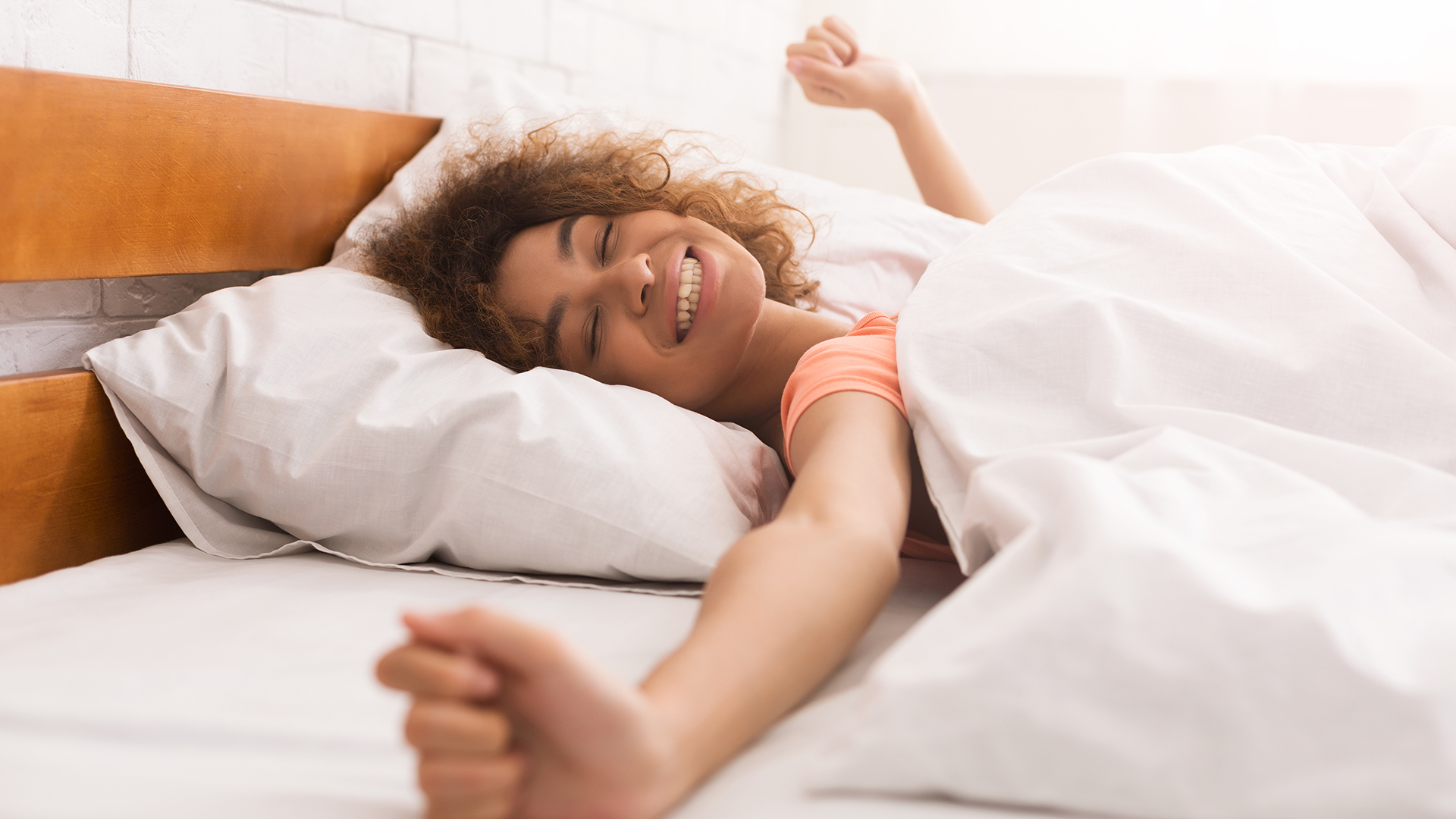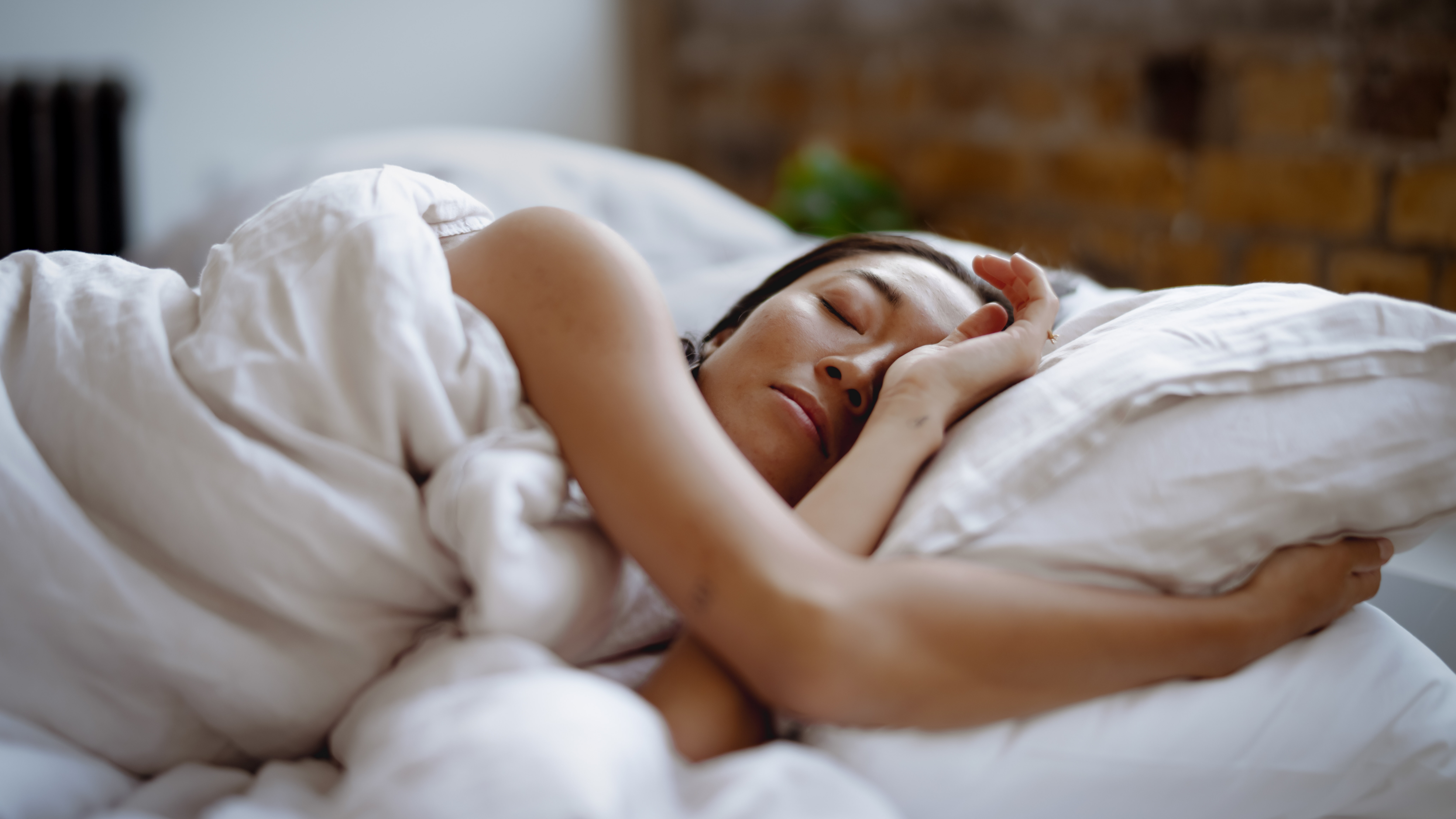

A study at UChicago and the University of Wisconsin–Madison looked into improving people's sleep habits, and found that more sleep had a knock-on effect on caloric intake.
The study took the form of a four-week-long randomised clinical trial involving 80 overweight adults who typically slept less than 6.5 hours a night. After a sleep counselling session, they were able to increase their sleep duration by an average of 1.2 hours a night, bumping it up over the typical 8-hour benchmark.
With no other prescribed lifestyle changes, participants also saw their overall caloric intake decrease by an average of 270 calories per day, with lowering their intake by up to 500 calories a day. They also recorded a negative energy balance – i.e. one where caloric intake is less than calories burned. Based on those average numbers, over three years that would translate to around 12kg or 26lb of weight loss, potentially just from improving sleep hygiene.
Previous studies have shown that sleep restriction can have knock-on effect on appetite and lead to increased food consumption, Esra Tasali, who headed up the study, told UChicago Medicine. That prompted the question if increased sleep could have the opposite effect.
Interestingly, the research took a 'real world' approach: participants followed their normal lifestyle, with no manipulation or control of their diet or exercise regime (“This was not a weight-loss study,” said Esra). The only self-monitoring was sleep, logged using a sleep tracker.
“Most other studies on this topic in labs are short-lived, for a couple of days, and food intake is measured by how much participants consume from an offered diet,” Esra told UChicago Medicine. “In our study, we only manipulated sleep, and had the participants eat whatever they wanted, with no food logging or anything else to track their nutrition by themselves.”
Another surprising takeaway was that the participants required very minor intervention to significantly improve their sleep duration. After just a single counselling session, participants increased their average sleep duration by over an hour a night. One key change, Esra noted, was to limit use of electronic devices before bedtime. For more tips, head to our article on how to sleep better at night.
Sign up to the T3 newsletter for smarter living straight to your inbox
Get all the latest news, reviews, deals and buying guides on gorgeous tech, home and active products from the T3 experts
"If healthy sleep habits are maintained over longer duration, this would lead to clinically important weight loss over time," continues Esra. "Many people are working hard to find ways to decrease their caloric intake to lose weight – well, just by sleeping more, you may be able to reduce it substantially."
Ruth is a lifestyle journalist specialising in sleep and wellbeing. She has tested more mattresses than her small flat can handle and will talk at length about them to anyone who shows even a passing interest, and has had to implement a one-in-one-out pillow policy for fear of getting smothered in the night. As well as following all the industry trends and advancements in the mattress and bedding world, she regularly speaks to certified experts to delve into the science behind a great night's sleep, and offer you advice to help you get there. She's currently Sleep Editor on Tom's Guide and TechRadar, and prior to that ran the Outdoors and Wellness channels on T3 (now covered by Matt Kollat and Beth Girdler-Maslen respectively).
-
 3 Nintendo Switch 2 launch games we can't wait to play
3 Nintendo Switch 2 launch games we can't wait to playHere are the three games we'll be pre-ordering along with the Nintendo Switch 2
By Matt Tate
-
 I just played new Mario Kart on Switch 2, now June is too far away
I just played new Mario Kart on Switch 2, now June is too far awayIt might not be the 3D Mario game we'd expected, but Mario Kart World on Nintendo Switch 2 is super fun
By Mike Lowe
-
 I spent 6 weeks with the FoodMarble Aire 2: here’s what I learned about my gut health
I spent 6 weeks with the FoodMarble Aire 2: here’s what I learned about my gut healthI’ve been testing the clever breath-testing gadget with the companion app over several weeks to find out if it delivers on its promises
By Lee Bell
-
 Oil pulling is going viral on TikTok for stopping morning breath – but does it actually work?
Oil pulling is going viral on TikTok for stopping morning breath – but does it actually work?4 hacks that prevent morning breath, according to a sleep expert
By Bethan Girdler-Maslen
-
 These limited edition McLaren x Loop earplugs are what you need for Formula 1 season
These limited edition McLaren x Loop earplugs are what you need for Formula 1 seasonMcLaren teams up with Loop on limited edition noise-reducing earplugs
By Bethan Girdler-Maslen
-
 5 sleep supplements that help me achieve 8+ hours of rest every night
5 sleep supplements that help me achieve 8+ hours of rest every nightIt took me years to perfect my sleep routine – here are the supplements that helped
By Lizzie Wilmot
-
 3 reasons why you wake up at 3am every night – and how to avoid it
3 reasons why you wake up at 3am every night – and how to avoid itAlways waking up in the middle of the night? This could be why…
By Bethan Girdler-Maslen
-
 This tiny device will automatically disable your distracting apps before you sleep
This tiny device will automatically disable your distracting apps before you sleepSay hello to Kip...
By Lizzie Wilmot
-
 Therabody experts give 7 tips for perfecting your sleep routine for World Sleep Day
Therabody experts give 7 tips for perfecting your sleep routine for World Sleep DayFrom breathing exercises to sleep masks, here’s how to prioritise sleep, according to experts
By Bethan Girdler-Maslen
-
 Loop Dream review: super soft earplugs to help you snooze soundly, even if you’re a side sleeper
Loop Dream review: super soft earplugs to help you snooze soundly, even if you’re a side sleeperSquishy silicone and uniquely shaped ear tips take Loop’s nighttime earplugs to dreamy heights
By Joanna Ebsworth